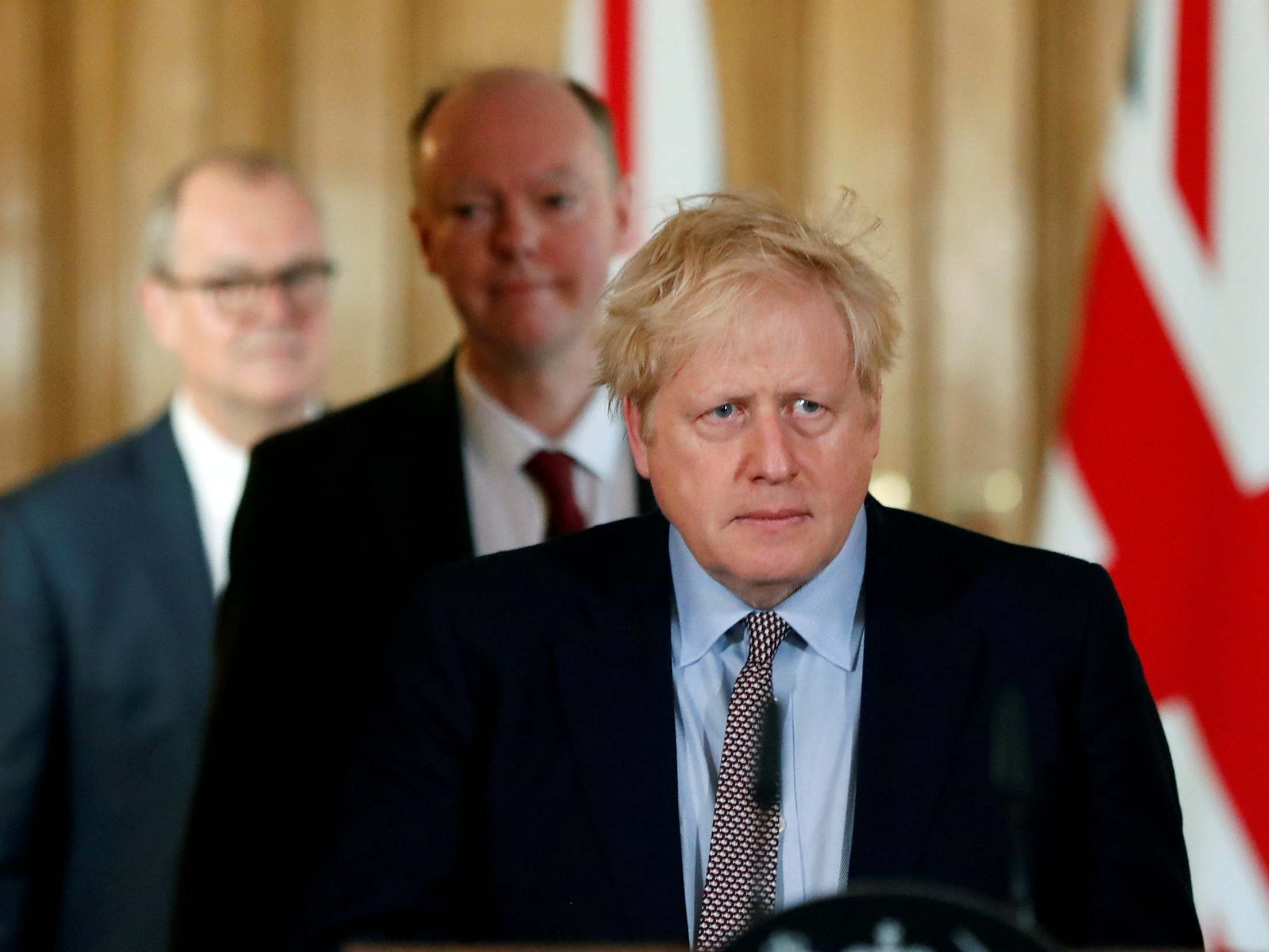Ministers must level with the public about the scientific evidence
Editorial: Throughout these turbulent weeks, Britons have been given little idea of the conflicting arguments presented in the government’s crisis meetings

Even if our politicians are not always genuinely willing to “follow the science”, at least the scientists themselves retain their sense of professional duty.
Hence the intervention of the Royal College of Pathologists. There is an urgent need for more special post-mortems to be carried out on Covid-19 victims, the professional body has told The Independent.
Such procedures have to be carried out, rightly, with the consent of the families, and there needs to be a greater effort to secure that in the limited time available. More small tissue samples subjected to more testing will help develop a vaccine and otherwise enhance understanding of this novel and puzzling disease.
Despite some early signs of success, and Donald Trump’s promise to put America’s pharma giants on a “warp speed” setting, a Covid-19 vaccine remains some way off, and Boris Johnson has cautioned that it may never be developed. All the more reason, then, to get the pathology labs even more involved in the research needed. If nothing else, a more extensive range of clinical testing of tissue will shed fresh light on the horrific organ failures that accompany late-stage Covid-19, and which have taken so many lives. Some of the questions about comorbidity may also find a quicker answer from the work of the pathology labs.
The pathologists’ concerns reflect a growing apprehension about the evidence being used to make the scientific assessments that public health officials and ministers rely on to frame their judgements. We know, because senior clinicians such as Dame Angela McLean and Professor Jonathan Van-Tam have said as much in public, that some of the scientific advice proffered to ministers is resource-constrained and has had to take into account “practical” considerations. Thus the attitude towards testing and tracing – abandoned too soon and now reintroduced too slowly – wasn’t based solely on some epidemiological modelling or insight or virology. We needed the resources (which did not exist and do not exist even today) to conduct a large-scale programme.
The decision to go for lockdown too late was influenced by a judgement, partly political, about whether the public would tolerate it. The current debate about easing lockdown and fully reopening the schools is following a similar pattern – an arbitrary date of 1 June most obviously having no great basis in pure science.
The public sees only a part of the evidence underpinning these crucial decisions, and a shifting one. International comparisons published daily for weeks, along with a commentary by a medical officer, have now been ditched – a political decision with a statistical argument behind it, but a political decision nonetheless. It is difficult to believe that Chris Whitty, the chief medical officer, would have objected to continuing to show his slides with the usual caveats, even as they grew ever more embarrassing for the government.
More worryingly it has been alleged that ministers had access to care home fatality figures weeks before they were being revealed to the public.
And of course throughout these turbulent weeks the public has little idea of the conflicting evidence and arguments balanced and contested at Sage and Cobra meetings. Instead, loaded anonymous briefings are given to friendly newspapers. This is certainly no way to run a response to any public health emergency, and certainly not one that has, on the “excess deaths” measurement, taken at least 50,000 loved ones before their time.
Join our commenting forum
Join thought-provoking conversations, follow other Independent readers and see their replies
Comments